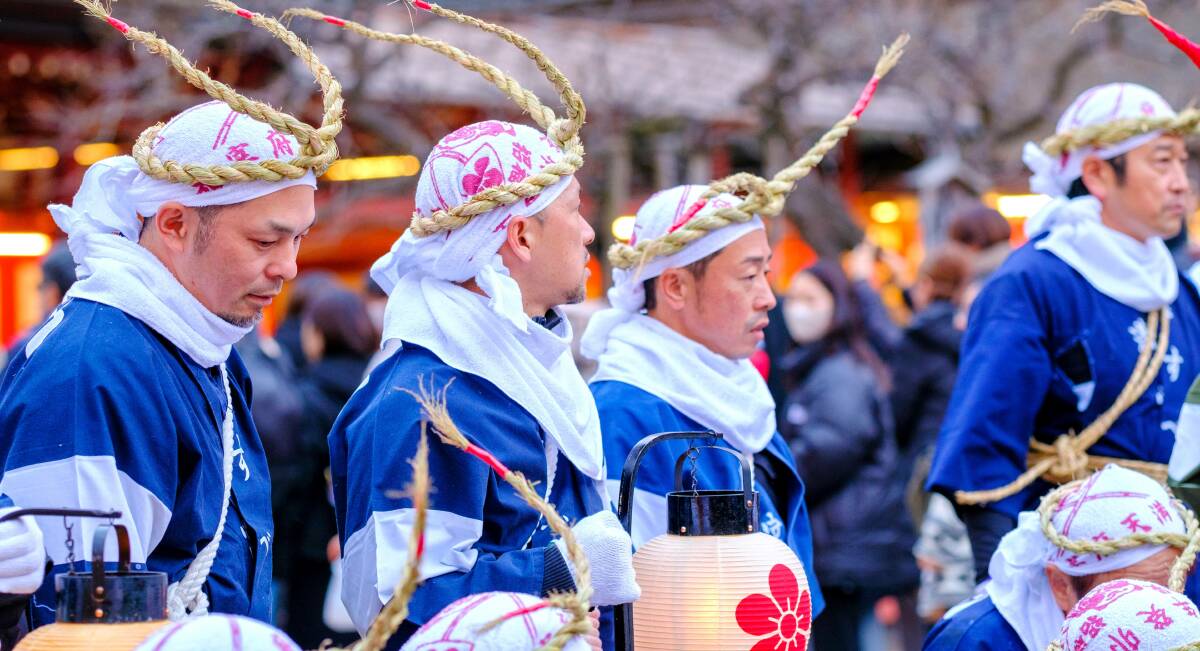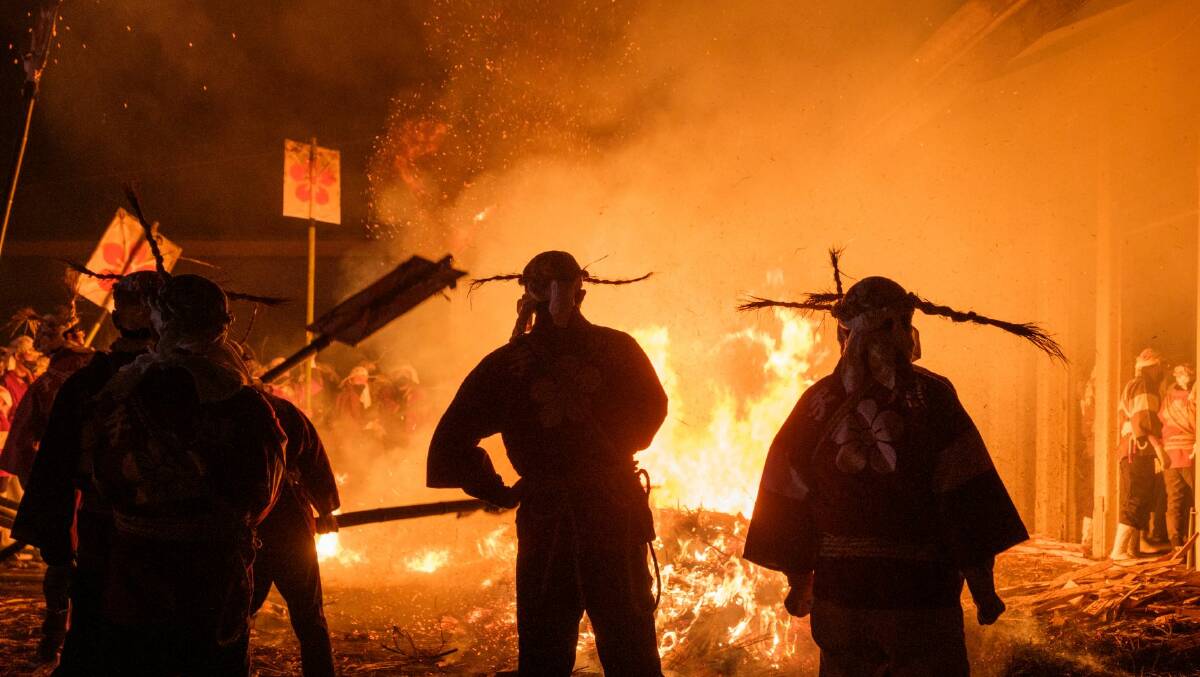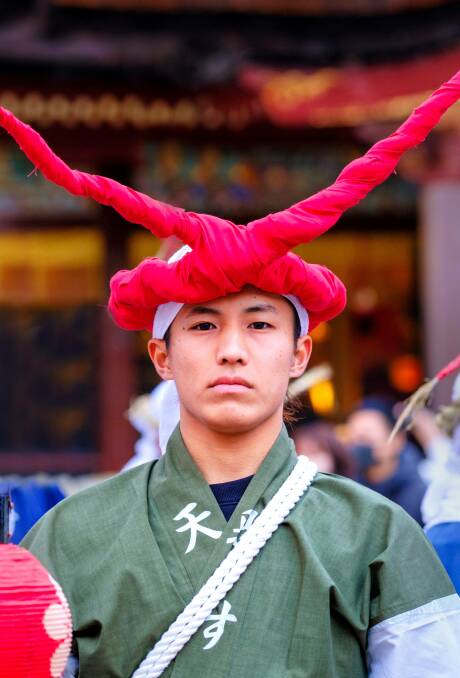
JAPAN is famous for many things - cherry blossoms, sumo wrestling, and green tea ceremonies, to name a few - but travellers rarely visit solely to see the sheer spectacle of one of the nation's fire festivals.
One of Japan's three main fire festivals, Onisube, changed my view of a society often described as formal, orderly, patient, and polite. Whilst Japanese society is based on those very threads and more, there's another wilder, festival-induced partake-in-sake side.
The side that comes alive during new year celebrations when the Shinto ritual sees some 300 men carrying wooden torches above their heads as hot embers rain down. Dating back to the year 986, the Onisube Fire Festival takes places every January 7 to end new year celebrations, bringing good luck for the year ahead.
A festival aficionado, the event had long topped my travel list. Listed as one of the country's Folk Cultural Properties, the celebrations are attended by hundreds of worshippers.
By mid-afternoon, a long line of devotees patiently await their turn to speak with the gods at the altar in Dazaifu Tenmangu Shrine - Japan's most sacred. Like waltzing, Shinto followers step forward two at a time, clap twice to awaken the gods before throwing a coin in an offering box - the only thing missing is Johann Strauss' rhythmic chords.

Prayers are silent, and there's a final bow post-prayer to pay respects. With over eight million gods, followers have faith their prayers will be answered. The atmosphere is charged with spiritual energy, and moved by the moment, I follow suit, tossing in a five-yen coin (considered the luckiest) before talking to the gods. Hundreds of devotees feed 100 yen (one Australian dollar) into boxes filled with fortune telling scrolls, select one to keep, or to tie next to hundreds of other, less favourable predictions. Others write wishes on wooden plaques hoping the gods will show them the right pathways.
The courtyard fills with followers carrying lanterns that flicker brighter as the sun slips behind the shrine. Three groups: ogres, protectors of the ogres, and the exorcists - who dispel evil spirits - congregate like troops. Long plaited "horns" twisted from straw make effective battle-like headdresses. The end game is to drive away evil spirits. It's serious business because it delivers good fortune to the community.

A Shinto priest, adorned in flowing red robes, enters the courtyard reciting prayers as he blesses the fire carriers. A short blessing goes a long way when you're hauling one-ton 13-metre burning torches through Dazaifu City. The dry wood quickly ignites turning darkness to light as intense flames rage across the night sky. The procession mounts as groups tramp towards Onisube Do Hall, where the demons are believed to be hiding.
I join the throng, a hot heaving movement focused on expelling evil energies. Everyone chants, "oni-ja, oni-ja" - we must drive the demons away. Some carry paper lanterns, others hold huge plaques embossed with Dazaifu Shrine's symbol. On entering the hall's grounds, the exorcists charge at the demon's protectors with a sumo-wrestling force. Stacks of hay are set alight as purifiers fan flames to smoke the demons out. The night air plummets to 2C as an intense inferno drives the ogres out, only to be captured, symbolising purification.
As flames subside, festival-goers gather to collect burnt fragments to place in their homes to ward off fire, bringing good luck throughout the year ahead. Calm returns, until the following year when Dazaifu City will blaze again in the quest to quell evil.
Lynn Gail was a guest of Fukuoka Prefecture Tourism Association.
IF YOU GO...
Fukuoka Prefecture is perched at the northern edge of the Kyushu Island in southern Japan. With two airports (Fukuoka and Kitakyushu), it provides one of the leading access points to the whole of Kyushu.
Flights to Fukuoka can be boarded from most cities in Japan. It takes less than two hours from Tokyo and a little over an hour from Osaka. Fukuoka can also be reached by bullet train from Tokyo (around five hours) and Osaka (aboutthree hours)
Read more: Japan's emperor has dinner date with goddess

